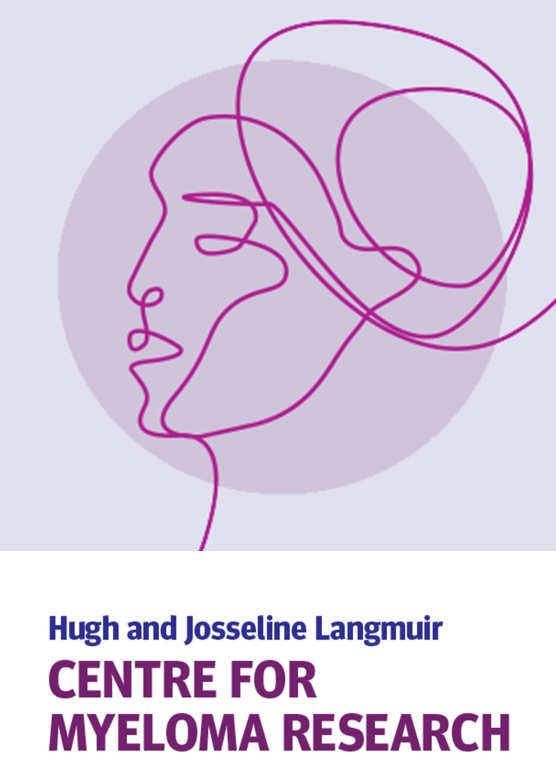BibTex format
@article{Hinsley:2020:10.1186/s13063-020-04739-8,
author = {Hinsley, S and Walker, K and Sherratt, D and Bailey, L and Reed, S and Flanagan, L and McKee, S and Brudenell, Straw F and Dawkins, B and Meads, D and Auner, HW and Kaiser, MF and Cook, M and Brown, S and Cook, G and Myeloma, UK Clinical Trials Network},
doi = {10.1186/s13063-020-04739-8},
journal = {Trials},
title = {The MUK eight protocol: A randomised phase II trial of Cyclophosphamide and Dexamethasone in combination with Ixazomib, in relapsed or refractory multiple myeloma (RRMM) patients who have relapsed after treatment with thalidomide, lenalidomide and a proteasome inhibitor},
url = {http://dx.doi.org/10.1186/s13063-020-04739-8},
volume = {21},
year = {2020}
}
RIS format (EndNote, RefMan)
TY - JOUR
AB - BackgroundMultiple myeloma is a plasma cell tumour with approximately 5500 new cases in the UK each year. Ixazomib is a next generation inhibitor of the 20S proteasome and is thought to be an effective treatment for those who have relapsed from bortezomib. The combination of cyclophosphamide and dexamethasone (CD) is a recognised treatment option for patients with relapsed refractory multiple myeloma (RRMM) who have relapsed after treatment with bortezomib and lenalidomide, whilst also often being combined with newer proteasome inhibitors. The most apparent combination for ixazomib is therefore with CD.MethodsMUK eight is a randomised, controlled, open, parallel group, multi-centre phase II trial that will recruit patients with RRMM who have relapsed after treatment with thalidomide, lenalidomide, and a proteasome inhibitor. The primary objective of the trial is to evaluate whether ixazomib in combination with cyclophosphamide and dexamethasone (ICD) has improved clinical activity compared to CD in terms of progression-free survival (PFS). Secondary objectives include comparing toxicity profiles and the activity and cost-effectiveness of both treatments. Since opening, the trial has been amended to allow all participants who experience disease progression (as per the IMWG criteria) on the CD arm to subsequently switch to receive ICD treatment, once progression has been confirmed with two clinical members of the Trial Management Group (TMG). This ‘switch’ phase of the study is exploratory and will assess second progression-free survival measured from randomisation to second disease progression (PFS2) and progression-free survival from the point of switching to second disease progression (PFS Switch) in participants who switch from CD to ICD treatment.DiscussionDevelopment of ixazomib offers the opportunity to further investigate the value of proteasome inhibition through oral administration in the treatment of RRMM. Previous studies investigating the safe
AU - Hinsley,S
AU - Walker,K
AU - Sherratt,D
AU - Bailey,L
AU - Reed,S
AU - Flanagan,L
AU - McKee,S
AU - Brudenell,Straw F
AU - Dawkins,B
AU - Meads,D
AU - Auner,HW
AU - Kaiser,MF
AU - Cook,M
AU - Brown,S
AU - Cook,G
AU - Myeloma,UK Clinical Trials Network
DO - 10.1186/s13063-020-04739-8
PY - 2020///
SN - 1745-6215
TI - The MUK eight protocol: A randomised phase II trial of Cyclophosphamide and Dexamethasone in combination with Ixazomib, in relapsed or refractory multiple myeloma (RRMM) patients who have relapsed after treatment with thalidomide, lenalidomide and a proteasome inhibitor
T2 - Trials
UR - http://dx.doi.org/10.1186/s13063-020-04739-8
UR - http://hdl.handle.net/10044/1/83463
VL - 21
ER -

